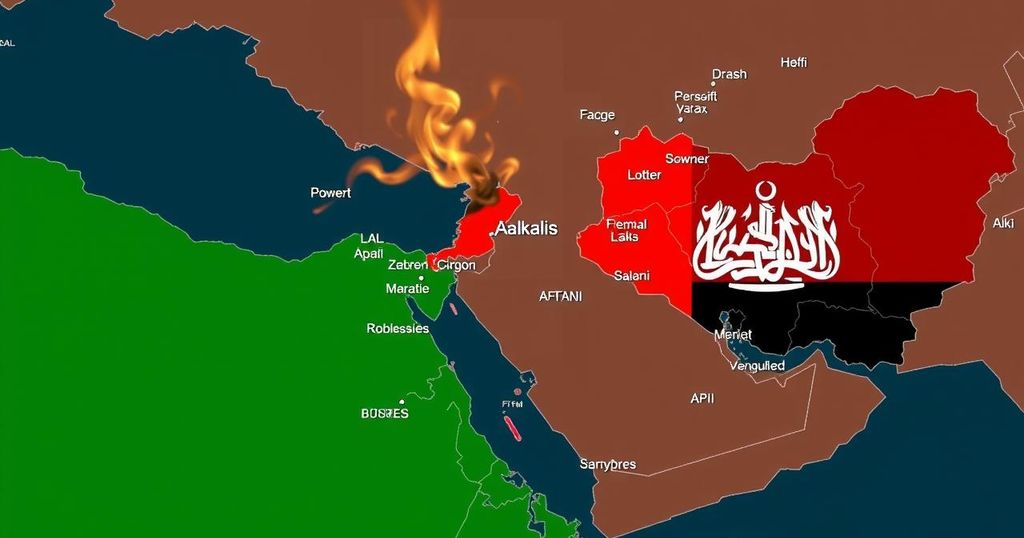Israel launched strikes on Iranian military sites on October 26, 2024, which led to widespread condemnation from several Arab nations, including Saudi Arabia, the UAE, Iraq, Qatar, Oman, Syria, and Jordan, all calling for restraint and adherence to international law amid escalating regional tensions.
On October 26, 2024, Israel executed a military strike targeting various sites in Iran, carefully avoiding critical oil and nuclear facilities. This aggressive action has resulted in heightened regional tensions, compounded by existing conflicts in Gaza and Lebanon, prompting a call for restraint from various Middle Eastern nations. The Israeli military acknowledged the strikes, which involved a series of pre-dawn attacks conducted by multiple aircraft on missile sites and other strategic locations. They issued a stern warning to Iran, advising against any retaliatory measures. In light of these developments, several Arab nations have publicly condemned the Israeli actions and urged for calm. Saudi Arabia responded with a condemnation of the attack, asserting that it constitutes a violation of Iranian sovereignty as well as international law. The Saudi Press Agency (SPA) conveyed a message emphasizing the Kingdom’s commitment to regional stability and its plea for all involved parties to exercise restraint, stating, “The Kingdom urges all parties to exercise full restraint and reduce escalation.” The United Arab Emirates (UAE) mirrored this sentiment, denouncing the military actions against Iran and expressing apprehension regarding the potential repercussions for regional security. The UAE Foreign Ministry proclaimed, “The UAE strongly condemns the military targeting against the Islamic Republic of Iran and expresses deep concern over the ongoing escalation and its impact on regional security and stability.” Iraq also voiced its disapproval, urging for a cessation of hostilities in Gaza and Lebanon and highlighting Israel’s aggressive policies in the region. The Iraqi Prime Minister’s office criticized the strikes, labeling them as blatant aggression. Qatar, fulfilling its role as a mediator in regional conflicts, articulated its concern regarding the severe implications of the Israeli attack. Oman emphasized the igniting of a destructive cycle of violence as a consequence of Israel’s actions, calling for the international community to intervene and halt these violations. In addition, Syria stood in solidarity with Iran, asserting its support for Iran’s right to self-defense against foreign aggression. Similarly, Jordan condemned the attack for breaching international law and Iran’s sovereignty. The Jordanian Ministry of Foreign Affairs, through its spokesman Sufyan Qudah, urged the international community to act and prevent further Israeli aggression in Gaza, the West Bank, and Lebanon as a necessary step toward de-escalation.
The recent tensions in the Middle East have escalated due to ongoing conflicts in regions like Gaza and Lebanon, alongside Israel’s targeted military actions against Iran. These developments reignite historical animosities and complicate diplomatic relationships in an already volatile area. The reactions from various Arab nations reflect a unified stance against perceived violations of sovereignty and the overarching threats to regional stability.
The response from Arab nations following Israel’s attack on military targets in Iran underscores a collective call for restraint and adherence to international law. As tensions remain heightened, the reactions from countries such as Saudi Arabia, the UAE, Iraq, Qatar, Oman, Syria, and Jordan signal a significant concern for the future stability of the region. Continuous dialogue and diplomatic engagement are crucial to prevent further escalation and ensure a peaceful resolution.
Original Source: en.tempo.co







